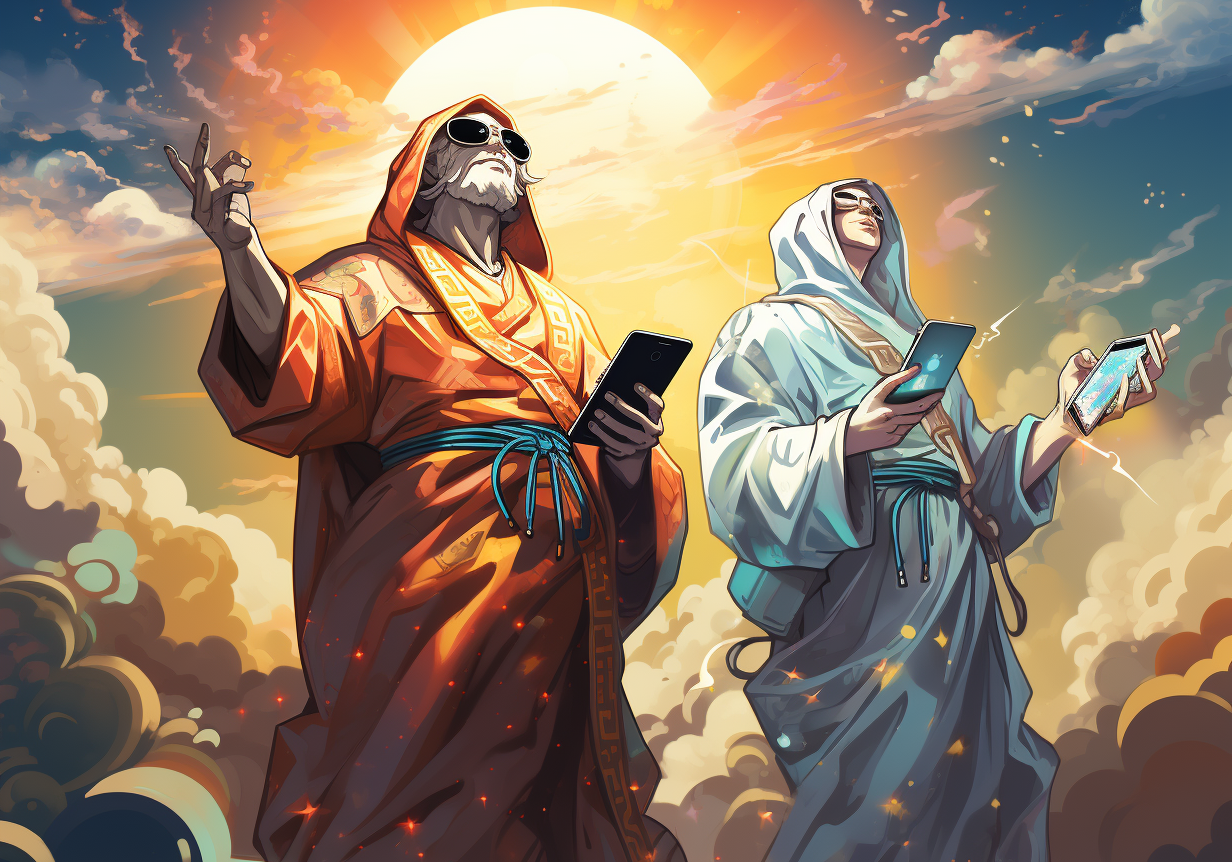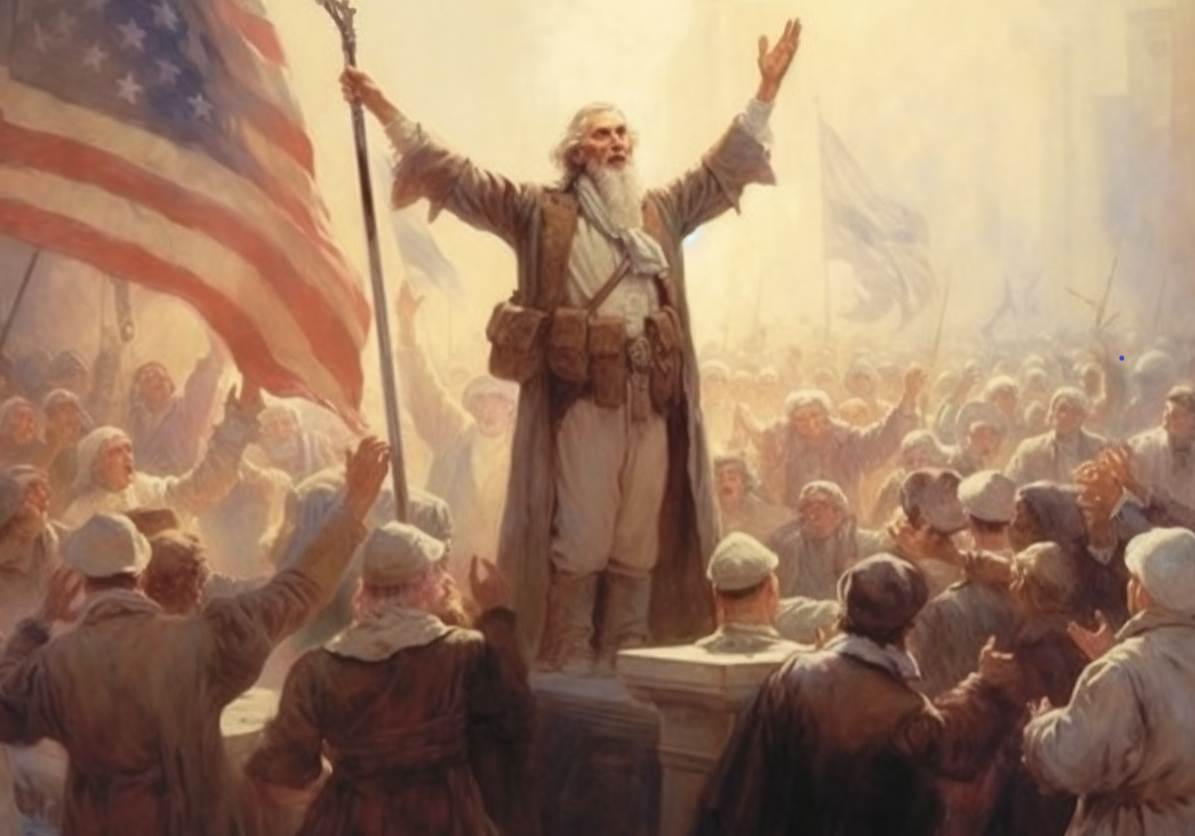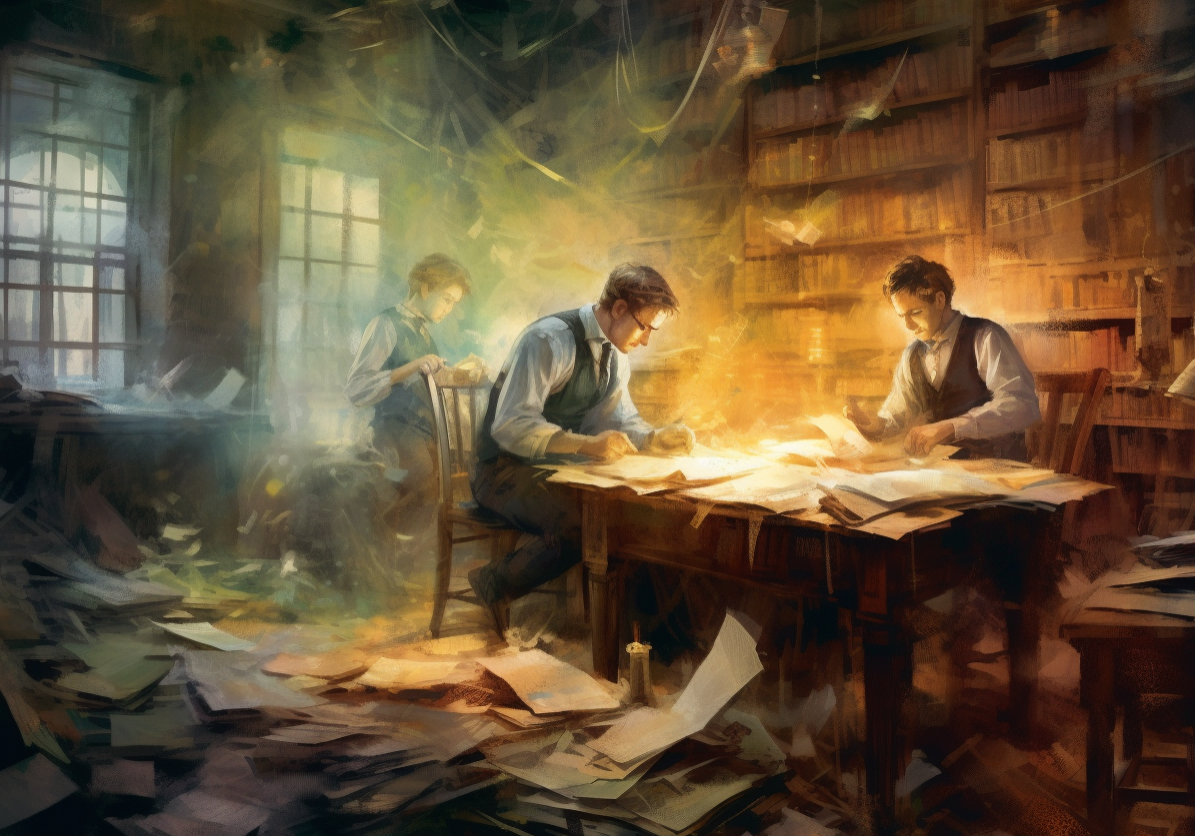You already know this story.
On Christmas in 1914, English infantry entrenched on a field in Flanders witnessed the crowns of makeshift Christmas trees begin to peek above the earthworks across the no-man's-land. Then, over the chilly air, they heard heard the Germans singing their most treasured contribution to the Christmas repertoire - Franz Gruber's Stille Nacht.
The English, who remain to this day unnervingly and unswervingly committed to caroling culture, were not about to let the Germans win a caroling competition. And so it was that Silent Night rose up to meet Stille Nacht on Christmas Day some 107 years ago. This accidental antiphony led a small but growing number of soldiers to leave their trenches to exchange a day of good will with their enemies. In some cases, they shared more than a day. This is true. This really happened. The truce, the haircuts, the exchanging of gifts and tobacco, all of the things you've read about, watched and listened to on podcasts - they really happened.
OK, the fabled soccer game in No Man's Land you have read about only probably happened, but it is too good of an image to discard for lack of hard evidence. That is true for the whole series of events, I suppose. All of it makes for an extraordinary, almost unbelievable image. It has stuck with us for a very long time now. It will be one of our stories for much longer.
Swords into Plowshares is a powerful Meme.










What I keep coming back to again and again - when did we reach the tipping point where “reality” was dramatized and fictionalized en masse? When did we get to the point where news and regular people’s lives became mere building blocks for narratives and entertainment on a scale large enough to cause social disunion based entirely on fictional constructs?
If we look back at totalitarianism (everyone’s favorite, convenient villain - the Nazis), we see a significant amount of powerful, and average, citizens believing in a man’s delusion - but that was a single powerful narrative aided by many different circumstances and the centralization of mass communication. Now, it seems as if there is an almost emergent property of democratized mass communication, whereby the demand for fictions, for stories, is insatiable, and it’s so ubiquitous that it is hard to separate what’s real from what is dramatized.
But besides the location and reasons for reaching this tipping point, how much is this even under the control of missionaries? How is it possible to account for the adaptability of the fictional constructs, with the audience and missionaries reacting to one another?
And, since you’re focused on the particular motte-and-baileys and mechanisms used the last two years and mapping those arguments - are there any additional generalizations you can make about this system? Is it simply a feature of modern life now that fictional constructs will live constantly side-by-side with reality?
Perhaps sometime around the year that (anti)social media (ie “Engagement by enragement”) got unleashed upon the world?
I honestly think we started on this path quite some time ago and I think you can definitely start to see some cultural precursors in the late 90’s especially, with 24-hour news coverage and certain social phenomena (motiveless school shootings). But I don’t know. It kind of seems that this is all part of a massive social upheaval precipitated by technology, and an upheaval which we are not able to fully grasp because it directly undermines our understanding of the world by flooding us with too much information…but I don’t know, that’s the way it seems to me.
Yes, although that has always been true. Democratized mass communication, as you put it, simply permits it to happen faster and at a larger scale. I don’t think that there was a tipping point in how much we are affected by stories or even how much our society became about stories.
When the story-making became a feature of emerging bifurcated tribal identity, the stories / fact-frames went from being an overlapping mess of beliefs to a distinct set of two realities. Instead of looking at someone who shared 60% of our narrative explanations for our world and could share what felt like a basic grasp on the same reality, that person might now share what, 10%? 15%?
We aren’t more story-wired, and the world isn’t more story rich. We are more story-sundered.
I think?
I’ve mentioned a few times my ‘narcissism-at-scale’ explanation of the world and this sort of fits neatly into that theory. Everyone needs to either be the narrator OR they need someone else to narrate to them the story that they believe is true. Social media and blogging culture amplify that to 11. From that starting point it isn’t hard to see how we got here.
What is so frustrating is the switch to the Motte, leaves people not knowing the proponent’s degree of belief in the Bailey, but suspecting they still hold that position - thus a complete breakdown of trust and an inability to continue the conversation, even when trying to come to an honest understanding of our differences.
This article reminded me of the Evolution of Trust "game: that made the rounds several years ago. It begins and ends with the same Christmas truce illustration Rusty uses here and shows how trust evolves / devolves through repeated competitive and cooperative games. Well worth your time if you haven’t “played” it before.
The Evolution of Trust (ncase.me)
I was today years old learning about franz gruber and his xmas song and the genius that is naming the bad guy in an xmas movie hans gruber. Great article.
I just want to say thanks Rusty for a terrific article.
Time and time again, reading ET forces me to think, to get out of a sort of “comfort zone”. And that’s a good thing, because I so easily seem to fall into the narrative traps.
Even at my relatively advanced age, I think I’ve “grown” quite a bit since I subscribed
Good stuff, please continue .
Thanks
One day a group of trained and resourced people will team up to concertedly breach
the walls of an infamous motte and bailey. The story of what happened will spread far and wide, with villains and heroes included. This will change the strategic viability of this type of engagement. Akin to field artillery , to extend the metaphor.
At some point we will have to deal with air superiority, if you expose any contentious beliefs in narrative controlled territory.